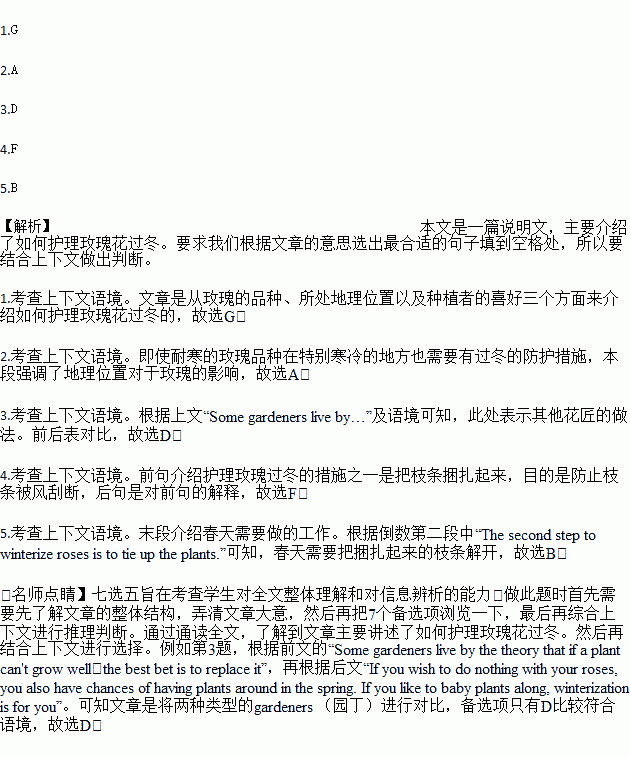题目内容
Winter care for roses
Do roses need extra care for winter? Like so many other things in the garden, the answer is debatable. 1.
Roses are grouped and referred to by type. Shrub roses  are the hardiest and need little extra care. Hybrid tea roses and other roses are more likely to need winterization to survive or remain healthy.
are the hardiest and need little extra care. Hybrid tea roses and other roses are more likely to need winterization to survive or remain healthy.
2. And even shrub roses exposed to severe winter conditions can suffer. If roses are growing in a location that is subject to heavy winter winds, even the hardiest varieties may benefit from winterization.
Some gardeners live by the theory that if a plant can't grow well, the best bet is to replace it. 3. If you wish to do nothing with your roses, you also have chances of having plants around in the spring. If you like to baby plants along, winterization is for you.
Winterize roses after a hard freeze and cold weather. The first step is to add soil or other plant material over the crown(花冠)of the rose bush. The material should be about 12 inches deep over the crown. The second step to winterizing roses is to tie up the plants. 4. If the plants are tall, use ropes to provide support to them.
When spring comes, remove the added soil from the base of the plant. 5. This is the time to clean up cuts and reduce plant size if desired.
A.Location also plays a role, though.
B.Remove strings if plants have been tied up.
C.So they often change the plants they grow.
D.Other gardeners have plants that are almost like children.
E.You should consider sunshine and water when answering this question.
F.The main purpose is to prevent them from breaking off in the face of strong winds.
G.It depends on the plant variety, growing location and a gardener's personal preference.

